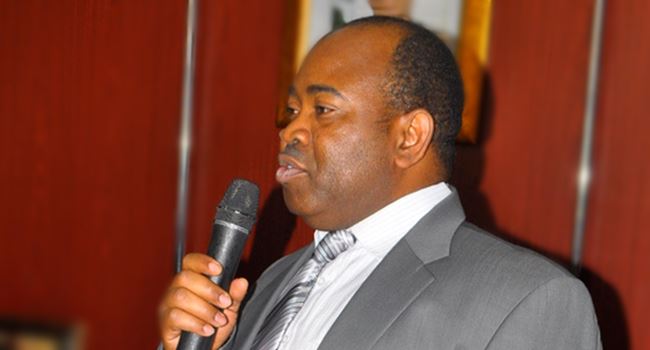Metro
NAFDAC warns against consumption of non-iodized salt, says “it is dangerous to health”

The National Agency for Food and Drug Administration and Control (NAFDAC) has warned against the consumption of non-iodised salt, declaring that its ingestion is “dangerous to human health”.
The warning was issued by the Director of Public Affairs of the agency, Dr Abubakar Jimoh on Tuesday in Abuja, while he was fielding questions from journalists who accosted him.
According to him, the consumption of such local salt could lead to goiter and other dangerous diseases and called on Nigerians to avoid the product, while also stating that there are four areas in Nigeria where traditional salt is still being traded, particularly in Nasarawa State.
He said there have been complaints that people in the rural areas were still consuming local salt which was not processed raising health fears.
Dr. Jimoh said; “NAFDAC is making effort to stop the trading of this salt in these states but some of them have refused.
“With the creation of NAFDAC in 1993, that was the first time and there was still major work to be done on salt consumption.
READ ALSO: Millions worth of goods lost as fire razes 15 shops in Edo
“We have organised sensitisation workshop on universal salt iodisation.
“We have been educating Nigerians that we should not be consuming this local salt because it is not iodised.
“We began a programme in collaboration with the United Nations International Children’s Emergency Fund (UNICEF), Micro Nutrient Initiative, Global Alliance and other development partners on the issue.
“We flagged off a campaign against that and it was held in Transcorp Hilton, Abuja, in 2004 under late Prof. Dora Akunyili as the Director General of the agency. Jimoh said based on the work NAFDAC did then, Nigeria was declared universal salt iodisation compliant in Turkey and also won numerous awards in that regard.
“Nasarawa is one of the identified four major endemic areas, they have insisted that it is their traditional source of making livelihood, it is commerce for them.
“They told NAFDAC at that time that if they must leave the trade, what they will be trading on must be provided for them,” the director said.
Join the conversation
Support Ripples Nigeria, hold up solutions journalism
Balanced, fearless journalism driven by data comes at huge financial costs.
As a media platform, we hold leadership accountable and will not trade the right to press freedom and free speech for a piece of cake.
If you like what we do, and are ready to uphold solutions journalism, kindly donate to the Ripples Nigeria cause.
Your support would help to ensure that citizens and institutions continue to have free access to credible and reliable information for societal development.
























